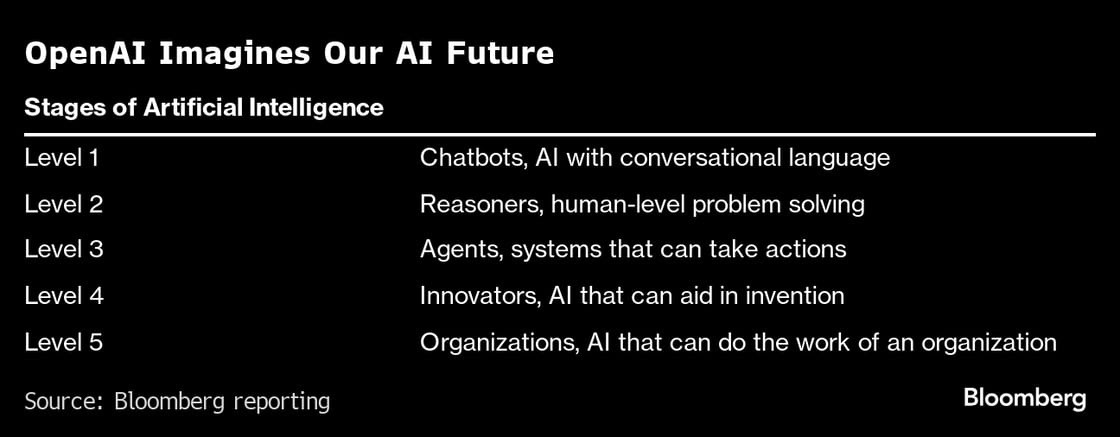DeepSeek's Release, Global Bans, and the Future of Artificial Intelligence

DeepSeek, a Chinese AI startup, has recently made waves in the artificial intelligence industry with its claims of developing highly efficient and cost-effective AI models. However, the company now faces scrutiny and bans in several countries amid concerns over data security and allegations of intellectual property infringement. DeepSeek claims to have developed AI models that rival or surpass industry leaders like OpenAI's ChatGPT at a fraction of the cost. The company's two main models, V3 and R1, are open-source and reportedly deliver impressive performance on reasoning tasks. DeepSeek asserts that its V3 model was trained for just two months at a cost of $5.6 million, significantly less than the billions spent by Western AI labs. DeepSeek is an emerging AI company founded in May 2023 by Liang Wenfeng, which has quickly gained attention for its innovative and cost-effective AI models, particularly DeepSeek-V3 and DeepSeek-R1. These models are designed to perform a wide range of tasks with high efficiency while requiring significantly fewer resources compared to competitors. DeepSeek-V3 serves as a general-purpose model, while DeepSeek-R1 is tailored for advanced reasoning and deep-thinking tasks.
How DeepSeek Was Created at a Lower Cost
DeepSeek's groundbreaking efficiency stems from its use of a "Mixture-of-Experts" (MoE) architecture. This design activates only a small subset of the model's parameters during any given task, drastically reducing computational demands. Additionally, the models incorporate a self-improving mechanism that mimics human trial-and-error learning, further enhancing their performance over time.What sets DeepSeek apart is its ability to achieve competitive results with minimal financial investment. The total development cost for the DeepSeek-V3 model was under $6 million—remarkably lower than the billions spent by companies like OpenAI or Google on their large language models. This achievement challenges the traditional assumption that cutting-edge AI requires massive budgets and advanced infrastructure.
Comparison to Other AI Models
- ChatGPT: DeepSeek-V3 and R1 are highly competitive with ChatGPT, especially in technical problem-solving and code generation. Both platforms offer web search capabilities to provide up-to-date information. However, ChatGPT includes features like customized GPTs for tailored applications, which DeepSeek currently lacks.
- Cost: DeepSeek is entirely free for users, with no query limits. Its API pricing is also significantly lower than competitors, making it an attractive option for businesses and developers. In contrast, ChatGPT charges for access to advanced features.
- Open-Source Nature: Unlike ChatGPT's closed model, DeepSeek-R1 is open-source under the MIT License, allowing developers to freely use and modify it without licensing fees. This openness fosters wider adoption and integration into various systems.
- Performance: While other models like ChatGPT, Llama, Perplexity, and Copilot excel in specific areas (e.g., conversational AI or coding), DeepSeek has quickly gained a reputation for delivering high performance at an affordable price point, making it a strong contender in the AI space.
What do users say?
User reviews and feedback on DeepSeek's performance and usability highlight a mix of strengths and limitations, with a generally positive reception among developers, businesses, and AI enthusiasts. Here's a summary of the key points:
Strengths
- Performance:DeepSeek scores highly on benchmarks like HumanEval (73.78% for coding) and GSM8K (84.1% for problem-solving), making it competitive with leading models like GPT-4.It excels in tasks requiring reasoning, arithmetic, and coding, with users praising its ability to generate clean, functional code across multiple programming languages.Its ability to process up to 128K tokens allows it to handle long-context tasks like analyzing large datasets or maintaining coherence in extensive codebases.
- Usability:The platform is noted for its user-friendly interface and clear documentation, making it beginner-friendly and accessible even to those new to AI tools.Features like transparency in reasoning—where the model shows its thought process—are appreciated for improving trust and understanding in its outputs.
- Cost-Effectiveness:DeepSeek is free for general users and offers significantly lower API costs compared to competitors, making it an attractive option for smaller businesses and individual developers.Its efficient architecture (activating only 37 billion of its 671 billion parameters) reduces computational costs without sacrificing performance.
- Open-Source Nature:The open-source design allows developers to customize and integrate DeepSeek into their workflows without licensing restrictions, fostering innovation and collaboration.
- Specialized Applications:Users have found it particularly valuable for software development, content creation, business automation, and education.
Limitations
- Feature Gaps:Some features are still under development or lack robust documentation, which may hinder advanced use cases.While competitive in many areas, DeepSeek's response time can lag behind models like GPT-4 or Claude 3.5 for complex tasks.
- Context Window Limitations:Although it supports long contexts (up to 128K tokens), this is still less than some competitors' capabilities for processing extremely lengthy documents.
- Cultural and Political Sensitivities:Certain topics—such as politically sensitive issues—may result in limited or biased responses due to the model's training data constraints.
Developers appreciate its cost-effectiveness and coding capabilities but note that it may not fully replace premium models like GPT-4 for highly specialized tasks. Transparency in reasoning has been highlighted as a standout feature, making it a preferred choice for users who value clarity in decision-making processes. Some users express frustration over occasional slower response times or limitations in niche applications but acknowledge these trade-offs given its affordability. DeepSeek is widely regarded as a disruptive force in the AI landscape due to its balance of performance, usability, and cost-efficiency. While it may not yet surpass premium models in all areas, its affordability and open-source framework make it a strong contender for democratizing access to advanced AI tools.
DeepSeeks Impact on Stock Markets
The launch of DeepSeek's low-cost AI had a significant ripple effect on global markets. US tech stocks recently experienced a sharp decline of over $1 trillion in value as investors reacted to the disruptive potential of this new AI model. Companies like Nvidia, which supply high-end GPUs for AI development, saw their stock prices drop significantly before partially recovering. This market reaction reflects concerns that cost-effective AI solutions like DeepSeek could reduce demand for expensive hardware and services traditionally required for training large language models. However, some experts believe this disruption could ultimately expand the market by making AI more accessible to smaller businesses and developers.
Implications for Other AI Companies
- Technological Innovation: DeepSeek's success demonstrates that cutting-edge AI can be developed with fewer resources by leveraging optimized architectures and efficient training methods. This could encourage other companies to rethink their development strategies.
- Increased Competition: The entry of a low-cost, high-performance AI model like DeepSeek could intensify competition in the market, driving down prices and spurring innovation across the industry.
- Democratization of AI: By drastically lowering costs, DeepSeek makes advanced AI technology accessible to smaller companies and individual developers who previously couldn't afford such tools. This democratization has the potential to unlock new applications and opportunities in various industries.
- Pressure on Premium Models: Companies offering premium AI services may need to justify their higher costs by delivering superior performance or unique features that free or low-cost models cannot match.
DeepSeek's cost-effective production model signals a shift in how AI is developed and deployed. It challenges the dominance of major players by proving that innovation doesn't always require massive budgets or cutting-edge hardware. If this trend continues, it could lead to a more level playing field in the AI industry, fostering greater accessibility and innovation while reshaping market dynamics globally.
The story goes further
Several recent controversies have emerged surrounding DeepSeek. These highlight the complex interplay of technological advancement, intellectual property rights, national security concerns, and market dynamics in the rapidly evolving AI sector.
- Allegations of Unauthorized Use of OpenAI's Technology: OpenAI and Microsoft are investigating whether DeepSeek obtained OpenAI's technology without authorization. OpenAI claims to have evidence that DeepSeek used a technique called "distillation" to leverage outputs from ChatGPT to train its smaller model, potentially violating intellectual property rights.
- Cyber Attack: DeepSeek reported a cyber attack that disrupted user registrations, attributing it to "large-scale malicious attacks." This incident has added to the speculation surrounding the company's rapid rise.
- Questions About Chip Access: There are concerns about how DeepSeek acquired advanced AI chips, given U.S. export controls. Scale AI CEO Alexandr Wang alleged that DeepSeek possesses 50,000 Nvidia H100 chips, which would violate U.S. export restrictions if true.
- Data Privacy Concerns: DeepSeek's data policies have raised eyebrows, as the company stores user information on servers located in China, potentially raising privacy and security concerns for international users.
- Impact on Stock Markets: The launch of DeepSeek's cost-effective AI models caused significant market disruption, with U.S. tech stocks losing over $1 trillion in value. Nvidia, in particular, saw a sharp decline in its stock price.
- National Security Review: The White House press secretary announced that the National Security Council is reviewing DeepSeek's security implications, indicating growing concerns about the technology's potential impact on U.S. interests.
Implications for AI IP rights if DeepSeek is found to have used OpenAI's models without permission
If DeepSeek is found to have used OpenAI's models without permission, it could have significant implications for AI intellectual property rights. These potential implications underscore the complex challenges in protecting AI intellectual property in a rapidly evolving technological landscape.
- Stricter IP Protection Measures: Companies may implement more robust safeguards to protect their AI models and data. This could include enhanced API access controls, improved monitoring systems, and stricter usage policies.
- Legal Precedents: The case could set important legal precedents for AI intellectual property, potentially leading to clearer definitions of what constitutes infringement in AI model development and usage.
- International Tensions: Given DeepSeek's Chinese origins, this situation may exacerbate tensions between the U.S. and China in the AI sector, potentially leading to more stringent regulations on international AI collaborations and data sharing.
- Regulatory Scrutiny: Governments might increase oversight of AI development, particularly focusing on cross-border data flows and the use of foreign AI technologies.
- Open-Source Challenges: The incident could complicate the landscape for open-source AI models, raising questions about the origins of training data and the potential for inadvertent IP infringement.
- Industry-wide Audits: AI companies might face pressure to conduct thorough audits of their model development processes to ensure they haven't inadvertently used protected intellectual property.
- Changes in AI Development Practices: The AI industry might shift towards more transparent development practices, with increased documentation of data sources and model architectures to prove originality.
- Economic Impacts: If proven, such infringement could lead to significant financial penalties and market value fluctuations for companies involved in AI development.
Global Reactions and Bans
The rapid rise of DeepSeek has prompted various countries to take action:
- Italy: The Italian Data Protection Authority ordered a nationwide ban on DeepSeek on January 28, 2025, citing potential data breaches and non-compliance with GDPR.
- Taiwan: Government agencies have banned DeepSeek due to national information security concerns.
- Australia: The country introduced a ban on all DeepSeek products from government systems and devices on February 4, 2025, citing national security risks.
- United States: While there is no official nationwide ban, several government agencies, including NASA and the Pentagon's Defense Information Systems Agency, have prohibited employees from using the app. The US Navy has issued a blanket ban for its service members.
- Other countries: Watchdogs in European countries such as Ireland, France, Belgium, and the Netherlands have raised concerns about DeepSeek's data collection practices.
Allegations of Intellectual Property Infringement
OpenAI, the San Francisco-based AI company, has accused DeepSeek of potentially violating its terms of service. OpenAI suspects that DeepSeek may have used a technique called "distillation" to extract data from OpenAI's technologies and train its own systems. This allegation has raised concerns about the security of AI models and ethical competition in the industry.
Data Security Concerns
Many companies have banned the DeepSeek app due to data security concerns. The company's privacy policy reveals that all user data is stored on servers based in China, which has led to comparisons with similar concerns about apps like TikTok.
Impact on the AI Industry
The emergence of DeepSeek has shaken the AI industry, demonstrating that generative AI can potentially be trained more affordably than previously thought. This development could lead to increased competition and innovation in the field. However, it also raises questions about the accuracy of DeepSeek's claims and the overall cost picture of AI development.As the situation continues to unfold, the global AI community watches closely to see how these developments will shape the future of artificial intelligence research, development, and regulation.


